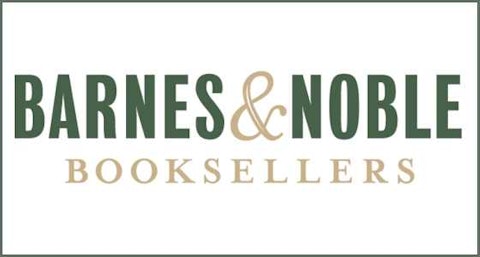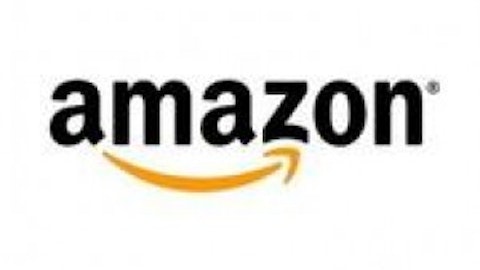Barnes & Noble, Inc. (NYSE:BKS) is a company of contradictions. It is a company tied down by its foundations as a big box retailer, yet aspires to be an e-commerce retailer like its rival Amazon.com, Inc. (NASDAQ:AMZN). Even after many of its industry peers – such as Borders – crumbled as the books business evolved, Barnes & Noble persevered. It even released its own tablet, the Nook, which was warmly received by critics, to compete with Amazon.

Buyout Offer
At the end of February, founder and chairman Leonard Riggio stated that he was interested in buying out the company’s retail operations, which include its brick-and-mortar operations and its e-commerce website.
Although Riggio did not hint at a purchase price, Barnes & Noble stock rallied strongly on Feb. 25 after the report. Riggio, who acquired the first Barnes & Noble store in Manhattan in the 1970s and created an entire market of big box booksellers, already owns a 30% stake in the company.
However, Riggio flatly stated that he was not interested in purchasing the Nook Media segment – which owns its Nook tablet e-readers and college bookstores business. The buyout could possibly result in a spin off of the Nook segment, an idea that had been entertained since January 2012. Some analysts believe that a spin-off could unlock the value of the e-book and tablet business for shareholders, while allowing Barnes & Noble to focus on its digital and brick and mortar retail businesses.
It’s all about the Nook…
Since 2009, Barnes & Noble had been attempting to shift away from the big box bookseller business model by introducing its answer to Amazon’s popular Kindle e-readers – the Nook. However, a year later, Apple Inc. (NASDAQ:AAPL)’s iPad arrived, followed by a plethora of Google Inc (NASDAQ:GOOG) Android tablets. These new tablets increased the market for digital books, and Apple and Google also joined the e-book race.
Amazon’s Kindle Fire arrived in 2011, and quickly became the second most popular tablet in America after the iPad, thanks to the company’s extensive cloud-based ecosystem of books, music, videos and apps – a massive archive that easily outgunned anything Barnes & Noble could offer its Nook owners.
Last April, Barnes & Noble sold 17.6% of its Nook unit to Microsoft for $300 million. Microsoft Corporation (NASDAQ:MSFT), in its typical strategy of rounding up misfit underdogs, had hoped to use the Nook – ironically an Android tablet – to maintain a degree of relevance in the rapidly growing tablet and e-reader market.
At the end of 2012, media giant Pearson purchased a 5% stake in Nook for $89.5 million. Both Microsoft and Pearson’s stakes value the Nook unit at $1.7 billion – far higher than Barnes & Noble’s own market cap of $900 million. That’s a key reason some shareholders are so keen on seeing the Nook Media unit operate as a new company, without the burden of Barnes & Noble’s retail businesses.
A critically acclaimed dud
Fighting a tough battle against a fragmented market of tablet makers has been exhausting for the company. Despite positive reviews for its 7-inch and 9-inch Nook HD tablets, the Nook’s unit revenue plunged 12.6% to $311 million during the holiday season, as increased demand for Apple, Samsung and Amazon tablets stole its thunder.
The New York Times reported that Barnes & Noble executives were planning to “move away” from manufacturing and selling its Nook devices, and “focus more on licensing its content to other device makers.” In other words, the company now plans to abandon its tablet business and offer Nook Apps on more popular platforms, such as iOS, Android or Windows 8, and possibly forge stronger partnerships with tablet makers such as Microsoft and Samsung.
Fundamentals versus competitors
Barnes & Noble no longer has any true competitors. It absorbed its only real industry rival, Borders, in Feburary 2011. Since then, it mainly competes against Amazon and the much smaller Books-A-Million, Inc. (NASDAQ:BAMM). Just how does Barnes & Noble measure up fundamentally against these peers?
| Forward P/E | 5-year PEG | Price to Sales (ttm) | Debt to Equity | Return on Equity (ttm) | Profit Margin | |
| Barnes & Noble | N/A | 0.07 | 0.11 | 38.82 | -4.35% | -0.62% |
| Amazon | 73.32 | 4.50 | 1.97 | 53.53 | -0.49% | -0.06% |
| Books-A-Million | N/A | N/A | 0.07 | 46.36 | 1.82% | 0.39% |
Source: Yahoo Finance
The fundamentals for these three companies are all over the map – but one thing remains constant across the board – books aren’t a terribly profitable business. Although Barnes & Noble and Books-A-Million look fundamentally undervalued, they also lack any spark for strong forward growth.
Looking at Amazon’s scattered fundamentals, you may also wonder how Amazon survives. Amazon, however, should be measured like a wholesale retailer that sells at huge volumes at paper-thin margins. In that case, it’s all about revenue.

BKS Revenue TTM data by YCharts
In this respect, Amazon is a beast. With its global presence and wide variety of products, Amazon is the first stop of many online shoppers. But when we take a look at diluted EPS growth over the past five years, a different story emerges.

BKS EPS Diluted TTM data by YCharts
Amazon wasn’t even profitable in its most recent quarter. Yet the market is usually very forgiving of Amazon’s missteps, since it is considered a more visionary, long-term investment, while brick-and-mortar big box retailers like Barnes & Noble are considered outdated and doomed. As we can see from this chart, that isn’t a fair generalization. Although Barnes & Noble and Books-A-Million are posting some bleak profits, they have definitely shown signs of bottoming out.
The Foolish Bottom Line
Barnes & Noble shouldn’t be considered a value stock. Its fundamentals are shabby and it has demonstrated poor growth potential in the past. The company is still on the ropes and being pounded by Amazon, Apple, Samsung and Google without a single chance to retaliate. However, Riggio’s proposed buyout could be a turning point for the company. Its Nook business, while troubled, could be a promising product on its own, while Barnes & Noble could continue concentrating its efforts on reviving its retail operations without fighting high-tech wars with better financed rivals. Lastly, with a market cap of less than $1 billion, Barnes & Noble could be a tasty takeover target for any major tech company looking to boost its book, tablet and e-reader offerings.
The article The Future of Barnes & Noble originally appeared on Fool.com and is written by Leo Sun.
Copyright © 1995 – 2013 The Motley Fool, LLC. All rights reserved. The Motley Fool has a disclosure policy.





